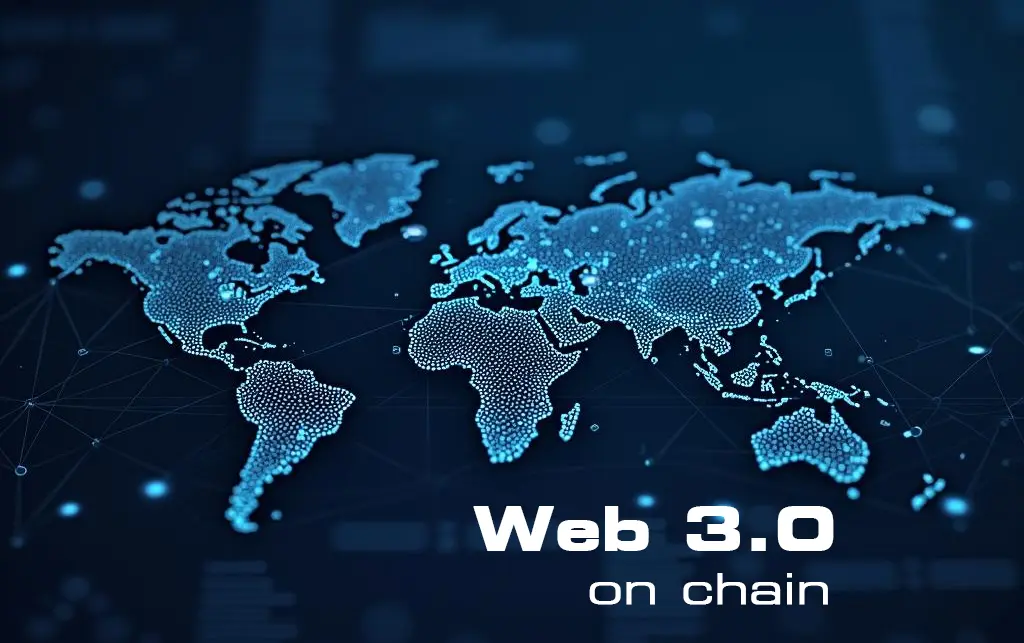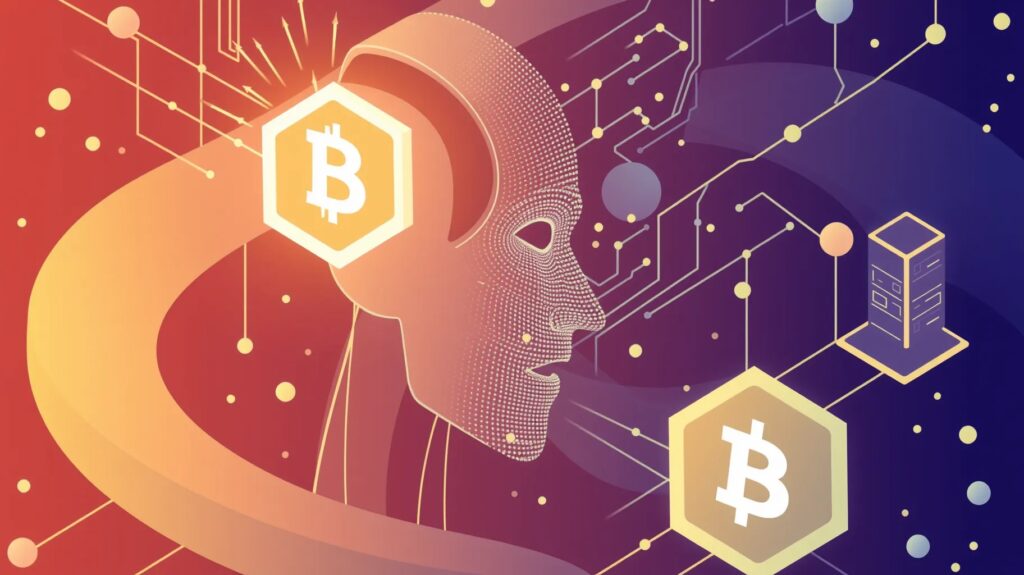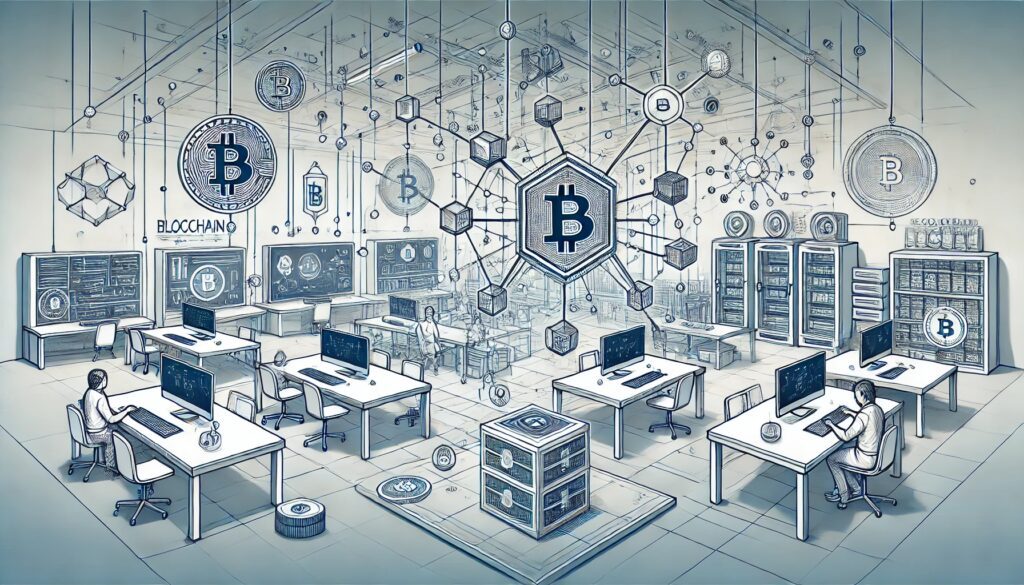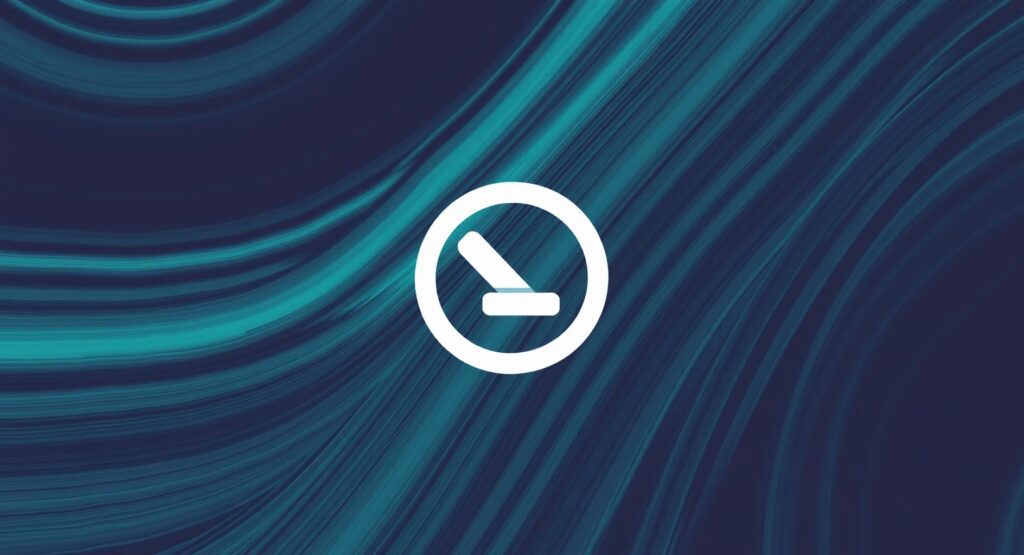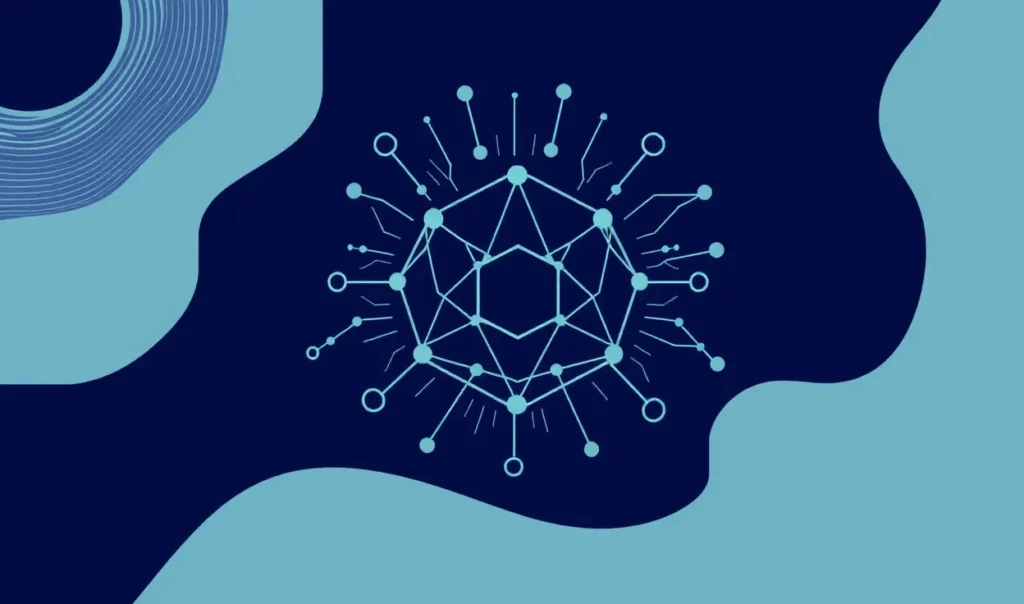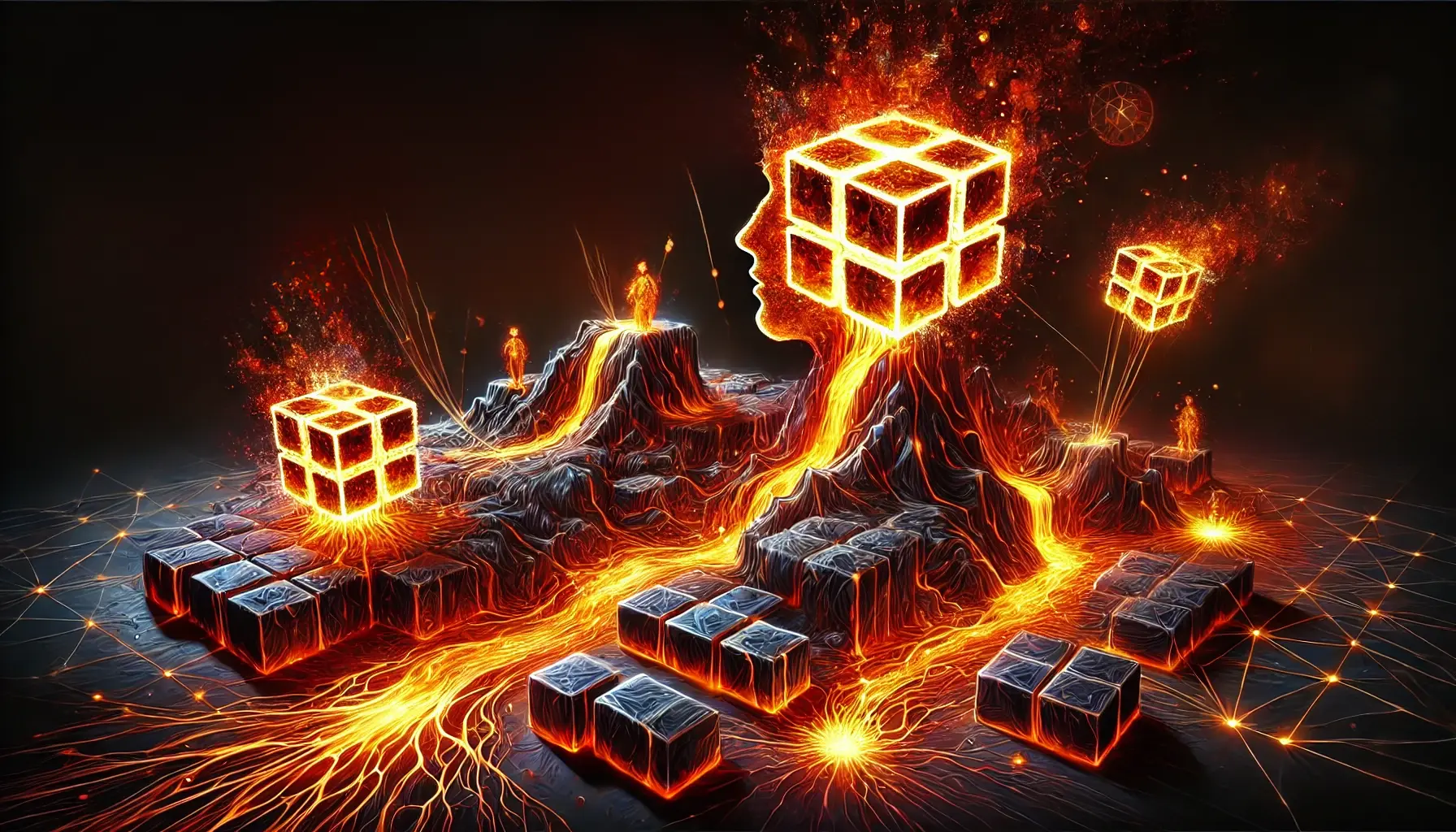
The fusion of blockchain technology and AI agents is reshaping the landscape of decentralized systems. These two technologies complement each other by addressing scalability, transparency, and automation.
Understanding Blockchain and Its Role in Decentralization
What Is Blockchain? A Refresher
Blockchain is a decentralized digital ledger that records transactions across a network of computers.
- It ensures transparency, security, and immutability.
- Popularized by cryptocurrencies like Bitcoin, its potential goes far beyond finance.
In decentralized systems, blockchain eliminates the need for intermediaries, ensuring trustless interactions between parties.

Key Elements:
- Users: Initiate transactions that are grouped into blocks.
- Miners: Validate transactions within the blocks using computational power.
- Consensus Mechanism: Ensures agreement among nodes on the validity of transactions.
- Validators: Confirm and finalize blocks for addition to the ledger.
- Ledger: Maintains an immutable chain of blocks, each connected securely.
Data Flow:
Validators confirm the block, which is added to the immutable ledger.
Transactions flow from users to blocks, validated by miners.
The consensus mechanism ensures agreement.
How Blockchain Powers Decentralized Systems
Blockchain is the backbone of decentralized applications (DApps), providing:
- Data transparency: All transactions are verifiable by the public.
- Immutability: Data tampering becomes virtually impossible.
- Smart contracts: Self-executing contracts automate processes, saving time and resources.
It’s this automation and trustless architecture that make blockchain an ideal partner for AI agents.
The Role of AI Agents in Decentralized Systems
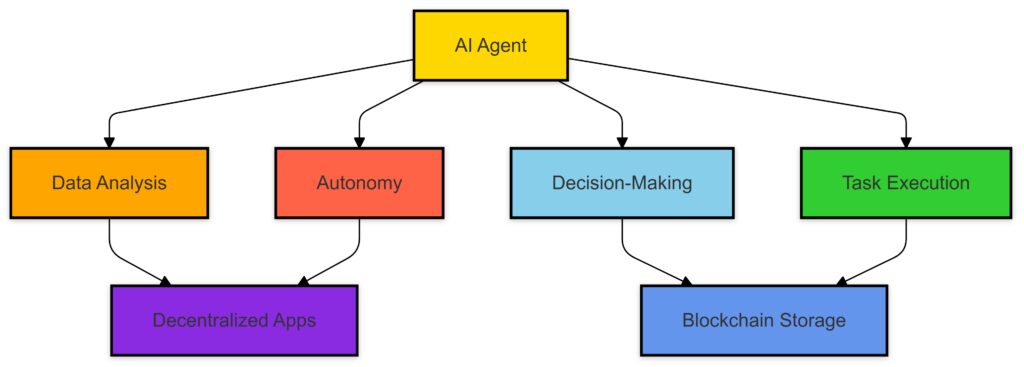
Data Analysis: Processes and extracts insights from data.
Decision-Making: Derives actionable decisions from analyzed data.
Task Execution: Performs defined tasks based on decisions.
Autonomy: Self-governing capability for independent operation.
Integration with External Systems:
Decentralized Apps (DApps): Linked to Data Analysis and Autonomy for deploying and interacting with decentralized applications.
Blockchain Storage: Securely stores outputs from Decision-Making and Task Execution.
What Are AI Agents?
AI agents are autonomous systems capable of making decisions, learning from data, and performing tasks with minimal human intervention. They’re the brains of the operation, analyzing data and optimizing processes.
- Examples include chatbots, trading bots, and data analysis tools.
- In decentralized systems, they can act as mediators, negotiators, and even creators.
Why AI Fits Seamlessly with Blockchain
AI agents thrive in data-rich environments. When integrated with blockchain, they gain access to a vast, secure, and immutable data source.
Key benefits include:
- Improved decision-making through verified data.
- Enhanced autonomy in managing tasks like resource allocation or smart contract execution.
- Reduced fraud or errors due to blockchain’s transparency.
Real-World Applications of Blockchain and AI Agents
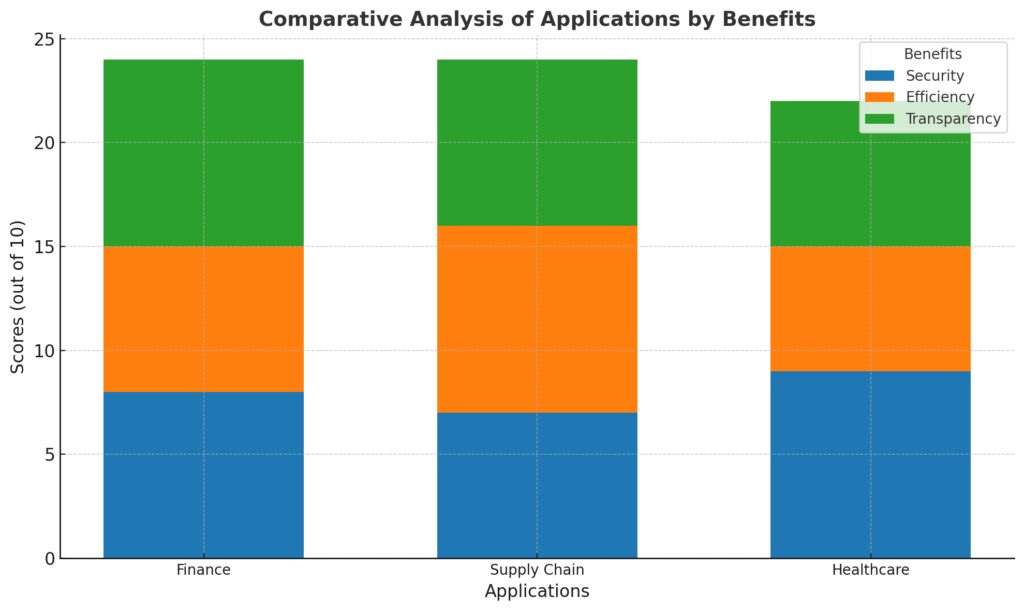
Decentralized Finance (DeFi)
AI agents can analyze market trends and execute smart contracts in real-time. Combined with blockchain, this creates a secure and efficient financial ecosystem.
- Automated trading powered by AI optimizes investment strategies.
- Transparent lending and borrowing platforms eliminate the risk of fraud.
Supply Chain Optimization
AI agents use blockchain data to track goods across the supply chain. This ensures:
- Authenticity of products with tamper-proof records.
- Real-time optimization of routes and inventory.
Example: Walmart uses blockchain for food traceability, ensuring quality and safety.
Challenges in Integrating Blockchain and AI
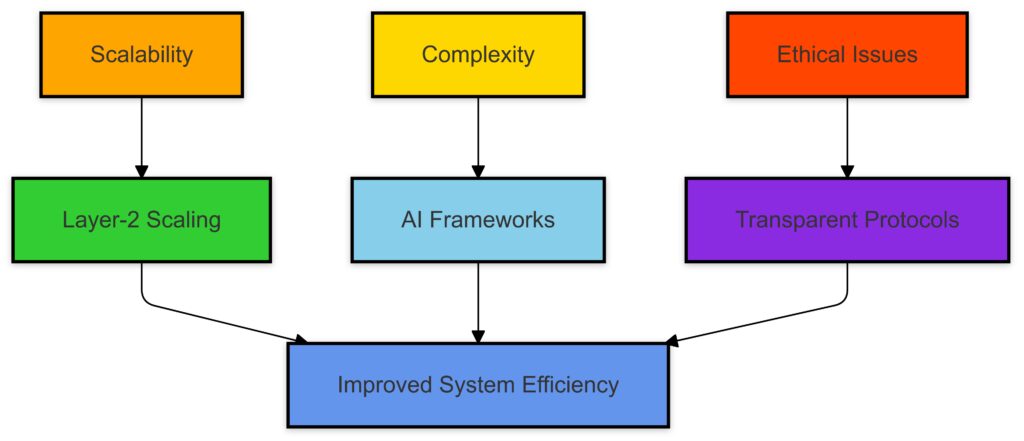
Complexity → AI Frameworks: Simplifies operations with advanced automation tools.
Ethical Issues → Transparent Protocols: Builds trust by ensuring accountability.
All solutions converge to achieve Improved System Efficiency.
Scalability Issues
Blockchain networks often face scalability limitations due to their decentralized nature. Integrating AI agents can exacerbate this problem by increasing data demands.
Potential solutions:
- Using layer-2 solutions like Polygon to enhance transaction throughput.
- Implementing AI models on the edge to reduce computational loads.
Ethical Considerations
The autonomy of AI agents raises ethical concerns:
- Who is accountable for an agent’s decisions?
- How do we ensure AI agents act ethically?
By leveraging blockchain’s transparency, these concerns can be mitigated, but continuous oversight is crucial.
Emerging Trends in Blockchain-AI Integration
The synergy between blockchain and AI agents is evolving rapidly, driving innovations across industries. Emerging trends highlight how these technologies are advancing together to overcome limitations and unlock new possibilities.
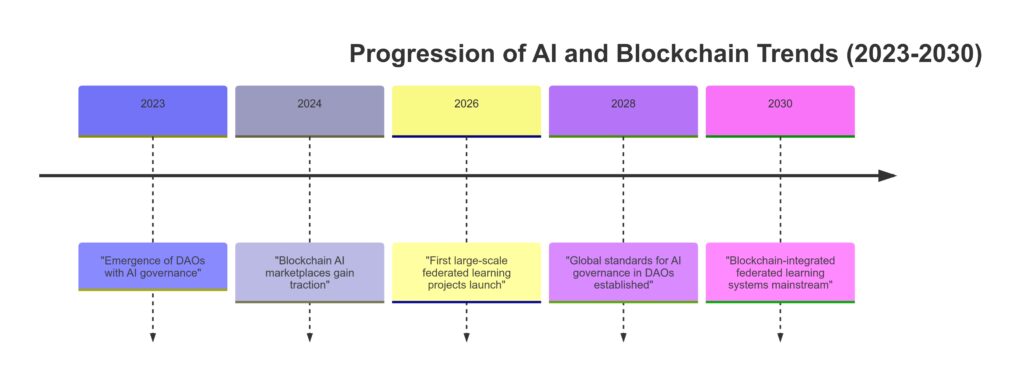
Decentralized Autonomous Organizations (DAOs)
DAOs are organizations governed by smart contracts on the blockchain, removing traditional hierarchies. The introduction of AI agents enhances their efficiency:
- AI-powered decision-making ensures data-driven governance.
- AI agents can monitor compliance with DAO rules in real-time.
- They enable adaptive systems, adjusting strategies based on member feedback and external conditions.
This trend paves the way for self-sustaining communities that run with minimal human oversight.
Federated Learning on Blockchain
Federated learning allows AI agents to train collaboratively on data from multiple sources without compromising privacy. Blockchain ensures that:
- Data provenance is secure, verifiable, and immutable.
- AI model updates are tracked, creating accountability.
For example, in healthcare, hospitals can share insights without exposing sensitive patient data.
The Rise of Blockchain-AI Marketplaces
AI marketplaces built on blockchain platforms are gaining traction. These enable individuals and organizations to:
- Buy, sell, or lease AI models, datasets, and computing power.
- Ensure fair pricing and ownership using blockchain records.
Platforms like Ocean Protocol and SingularityNET are already making this a reality. They provide a decentralized way to exchange AI resources securely and transparently.
Enhanced Personalization Through AI and Blockchain
Personalized services are becoming more refined thanks to AI and blockchain.
- AI agents use blockchain-based user profiles to deliver tailored experiences.
- These profiles remain private yet verifiable, granting users control over their data.
Applications include:
- Healthcare: Custom treatment plans based on verified medical history.
- Entertainment: Personalized content recommendations on decentralized streaming platforms.
Overcoming Energy Concerns
One pressing challenge for blockchain is its high energy consumption, particularly for networks using proof-of-work (PoW). AI is helping to address this:
- AI algorithms optimize energy usage in mining processes.
- Blockchain supports AI-driven green initiatives, such as incentivizing renewable energy contributions.
Additionally, newer blockchains adopting proof-of-stake (PoS) consensus mechanisms are more energy-efficient, ensuring better alignment with sustainability goals.
Future Outlook: Blockchain and AI at Scale
As both technologies mature, their convergence will revolutionize how decentralized systems function. In the next section, we’ll explore the long-term potential, including blockchain-AI in smart cities, predictive analytics, and how this integration might impact industries like education and public policy. Prompt “#” to dive into the exciting future!
FAQs
What Are the Benefits of Using Blockchain with AI Agents?
Combining blockchain and AI agents unlocks several advantages:
- Transparency: Blockchain ensures all data used by AI agents is verifiable.
- Security: Immutable records reduce the risk of manipulation.
- Efficiency: AI agents optimize processes, like supply chain logistics or fraud detection.
For instance, a pharmaceutical supply chain can use AI to predict demand spikes and blockchain to track drug authenticity.
Are There Any Ethical Challenges in Integrating These Technologies?
Yes, ethical challenges include:
- Accountability: Who is responsible if an AI agent makes a harmful decision?
- Bias: AI agents might inherit biases from training data, despite blockchain’s transparency.
- Privacy: Balancing data privacy with transparency is complex.
In practice, healthcare AI can flag medical anomalies but must avoid discriminatory patterns, which blockchain auditing can help verify.
Can Blockchain-AI Systems Scale for Global Applications?
Scalability remains a challenge, especially for blockchain networks processing high transaction volumes. However, emerging solutions like:
- Layer-2 scaling technologies (e.g., Polygon).
- Federated AI learning to process data locally and reduce strain on the blockchain.
An example is global logistics, where AI agents optimize shipments locally, while blockchain tracks every parcel’s journey worldwide.
How Secure Are Systems Combining Blockchain and AI Agents?
The combination is highly secure due to blockchain’s immutable nature and cryptographic protections. Blockchain ensures that AI agents use verifiable data and prevents tampering.
For example, in financial services, AI agents detect fraud patterns, and blockchain stores transaction logs that cannot be altered, ensuring data integrity.
Can Blockchain Make AI More Transparent?
Yes, blockchain provides an audit trail for all AI decisions by recording the data sources and processes used. This makes AI behavior traceable and accountable.
In healthcare diagnostics, for instance, an AI model’s predictions can be tracked back to specific data points stored on the blockchain, making it easier to explain its results.
How Do AI Agents Enhance Smart Contracts?
AI agents bring intelligence and adaptability to smart contracts by analyzing real-time data and triggering contract conditions dynamically.
For example, in insurance claims, AI can assess damage reports, and smart contracts can automate claim payouts once verified, reducing manual intervention.
Is It Possible to Use Blockchain-AI Systems Without Coding Skills?
Yes, many platforms now offer user-friendly interfaces that abstract the complexity of blockchain and AI. No coding skills are needed to interact with DApps or train simple AI models.
For instance, NFT marketplaces allow creators to mint tokens without blockchain expertise, and AI-powered tools recommend pricing strategies based on market trends.
Are Blockchain and AI Agents Environmentally Sustainable?
While early blockchain models like proof-of-work (PoW) were energy-intensive, newer systems like proof-of-stake (PoS) are far more efficient. AI agents can optimize energy usage in blockchain operations.
In renewable energy platforms, AI predicts consumption patterns, and blockchain ensures the secure trade of energy credits. This approach supports green energy initiatives globally.
Can AI Agents on Blockchain Improve Privacy?
Absolutely. AI agents can operate on encrypted data stored on the blockchain, ensuring user privacy while still performing valuable computations.
In health research, AI can analyze encrypted medical data without exposing sensitive patient information, thanks to blockchain’s secure architecture.
How Does Blockchain Ensure Fair AI Models?
Blockchain records every step of an AI model’s development, from data sources to training processes. This makes it easier to detect and rectify bias in AI algorithms.
For instance, a recruitment AI system trained on blockchain-audited data can be validated to ensure fair hiring practices.
Can AI Agents Self-Evolve on Blockchain?
Yes, AI agents can update themselves by learning from new data stored on the blockchain. However, safeguards are essential to prevent malicious or faulty updates.
A practical example is self-optimizing trading bots, which adapt strategies based on market trends logged in blockchain transactions.
Are Decentralized AI Agents a Reality Yet?
Yes, platforms like SingularityNET are paving the way for decentralized AI agents. These agents operate without centralized control, using blockchain to ensure transparency and trust in their interactions.
For example, a decentralized AI agent might offer consulting services, verify payment via blockchain, and deliver results autonomously.
How Can Blockchain and AI Fight Fraud?
AI agents detect anomalies and suspicious activities in real-time, while blockchain ensures secure and tamper-proof records of all transactions.
In e-commerce, blockchain verifies product authenticity, and AI flags counterfeit items by analyzing sales data and patterns.
What Are the Limitations of Blockchain and AI Integration?
Despite their potential, challenges remain:
- Scalability: Processing large datasets can strain current blockchain networks.
- Complexity: Integration requires expertise in both technologies.
- Cost: Initial development and implementation can be expensive.
However, solutions like layer-2 blockchains and modular AI frameworks are gradually addressing these limitations.
Is It Expensive to Implement Blockchain-AI Solutions?
While upfront costs can be high, long-term savings from automation, efficiency, and fraud prevention often outweigh the investment.
For example, implementing a blockchain-AI supply chain system may require resources initially, but it eliminates costs related to intermediaries and product losses.
Can Small Businesses Use Blockchain and AI Agents?
Absolutely! Many platforms offer accessible tools tailored for small businesses, such as blockchain invoicing systems powered by AI for payment tracking and cash flow predictions.
For example, QuickBooks integrates AI-powered analytics for SMBs, and emerging blockchain platforms offer scalable solutions for secure transactions.
Resources
Platforms to Experiment
- Ethereum
Experiment with building decentralized applications (DApps) using smart contracts.
Visit Ethereum - OpenAI APIs
Explore creating AI agents for automation and decision-making tasks.
Visit OpenAI - Hyperledger
An open-source blockchain framework suitable for building enterprise-grade decentralized systems.
Visit Hyperledger
Industry Reports
- World Economic Forum’s Report on Blockchain
Highlights the potential of blockchain and AI in building sustainable and transparent systems.
Read the Report - Gartner AI and Blockchain Trends
Offers insights into how enterprises are adopting blockchain and AI technologies.
Explore Gartner
Communities and Forums
- Reddit: r/Blockchain and r/MachineLearning
Join discussions, ask questions, and learn from community experts. - GitHub Blockchain-AI Projects
Discover open-source projects and contribute to innovations.
Search GitHub - SingularityNET Community
A decentralized AI platform actively merging blockchain and AI.
Visit SingularityNET
Blogs and News Outlets
- CoinDesk
Stay updated with blockchain and cryptocurrency news.
Visit CoinDesk - Towards Data Science
A Medium publication with articles on AI, machine learning, and blockchain trends.
Visit Towards Data Science - TechCrunch Blockchain Section
Latest news and breakthroughs in blockchain and AI.
Visit TechCrunch
Tools and Software
- TensorFlow
A popular AI framework for developing machine learning models.
Visit TensorFlow - Truffle Suite
A suite of tools for blockchain development, perfect for creating AI-integrated smart contracts.
Visit Truffle Suite - Ocean Protocol
A platform designed for secure sharing of data between AI systems using blockchain.
Visit Ocean Protocol

